New Relic
The New Relic modules allow you to create, update, list, and delete the deployments in your New Relic account.
Getting Started with New Relic
Prerequisites
A New Relic account
In order to use New Relic with Make, it is necessary to have a New Relic account. If you do not have one, you can create a New Relic account at newrelic.com/signup.
Note
The module dialog fields that are displayed in bold (in the Make scenario, not in this documentation article) are mandatory!
Connect New Relic to Make
To connect your New Relic account to Make you need to obtain the API Key from your New Relic account and insert it in the Create a connection dialog in the Make module.
Log in to your New Relic account and open your Dashboard.
Click Your Profile Name > Account Settings > API Keys.
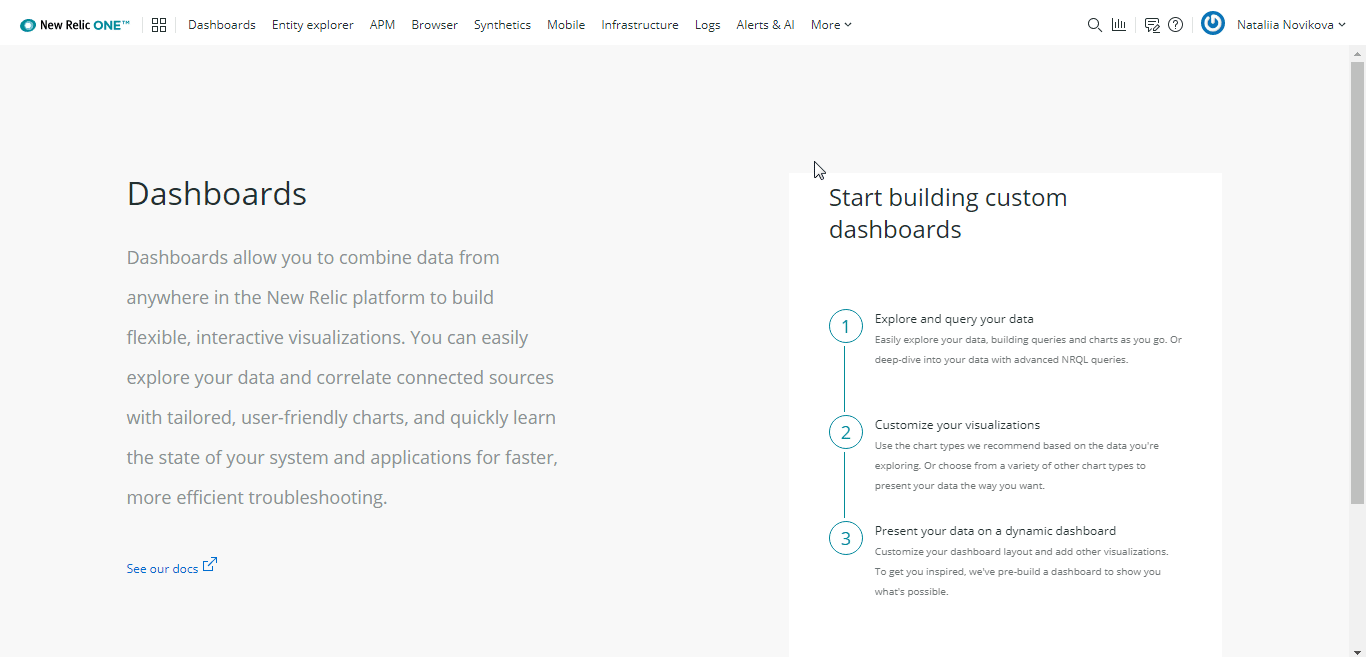
Click Create REST API Key > Show Key. In the Admin User's API Keys section, click the Refresh (
 ) icon > Show Key. Copy the REST API key and Admin API key to a safe place.
) icon > Show Key. Copy the REST API key and Admin API key to a safe place.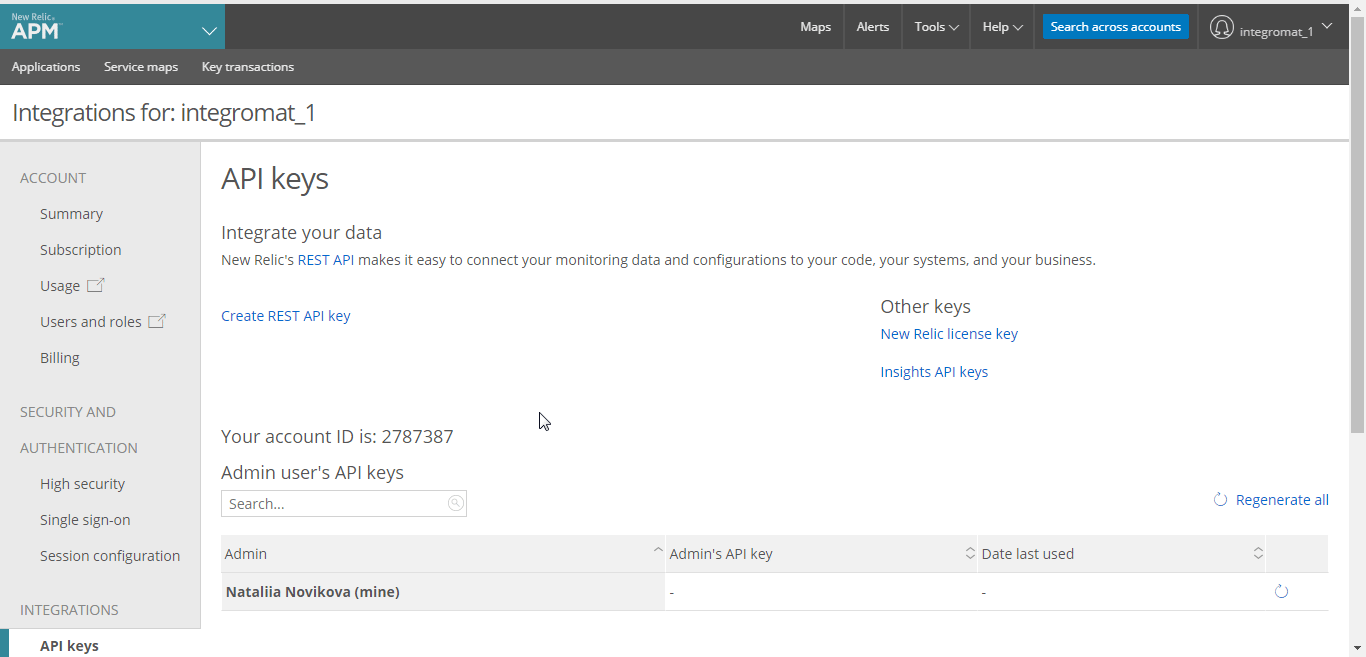
Go to Make and open the New Relic module's Create a connection dialog.
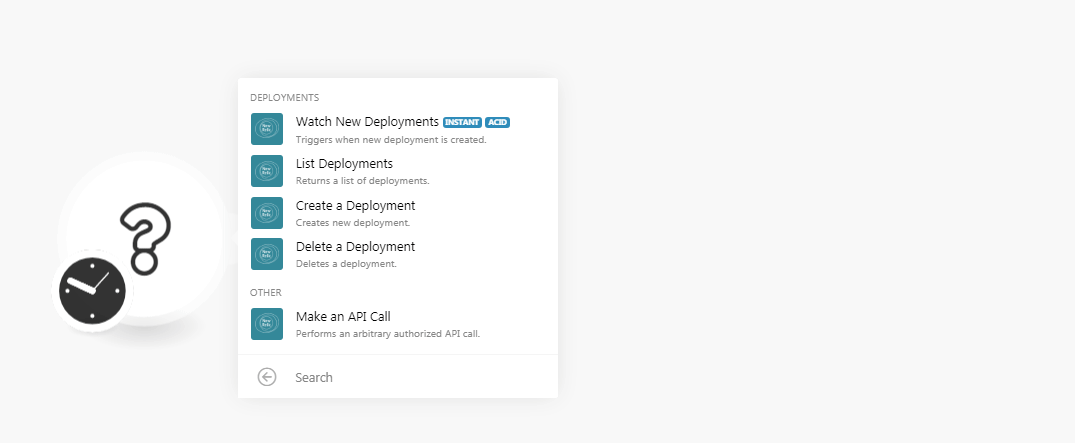
In the Connection name field, enter a name for the connection.
In the REST API Key and Admin API Key fields, enter the keys copied in step 3 respectively.
Select whether your region is an EU Region and click Continue.
The connection has been established.
Deployments
Triggers when a new deployment is created.
Webhook Name | Enter a name for the webhook. |
Connection |
Open the Watch Deployments module, establish a connection, click Save, and copy the URL address to your clipboard. Click OK, Save, and run the trigger.
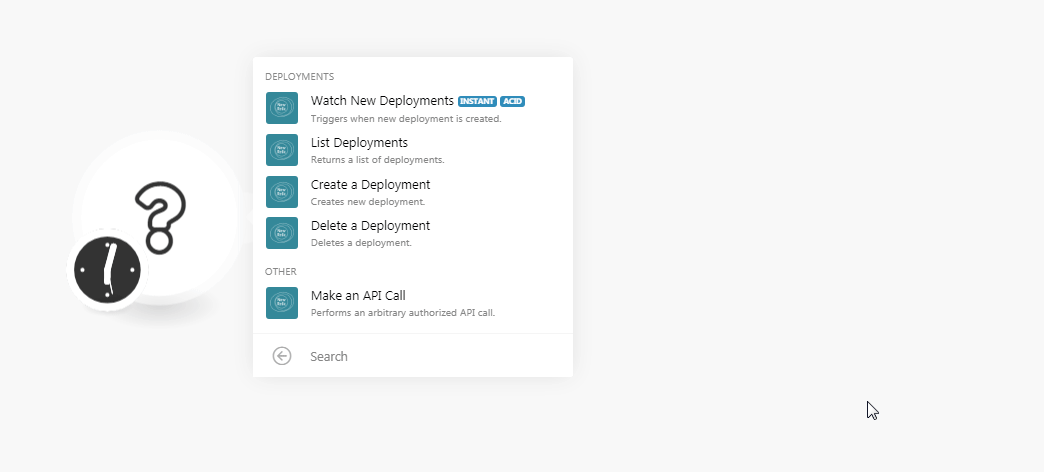
Login to your New Relic account, click Your Profile Name > Account Settings > Deploy Notifications. In the Webhook URL field, enter the URL address copied in step 1, and click Integrate with Webhooks.
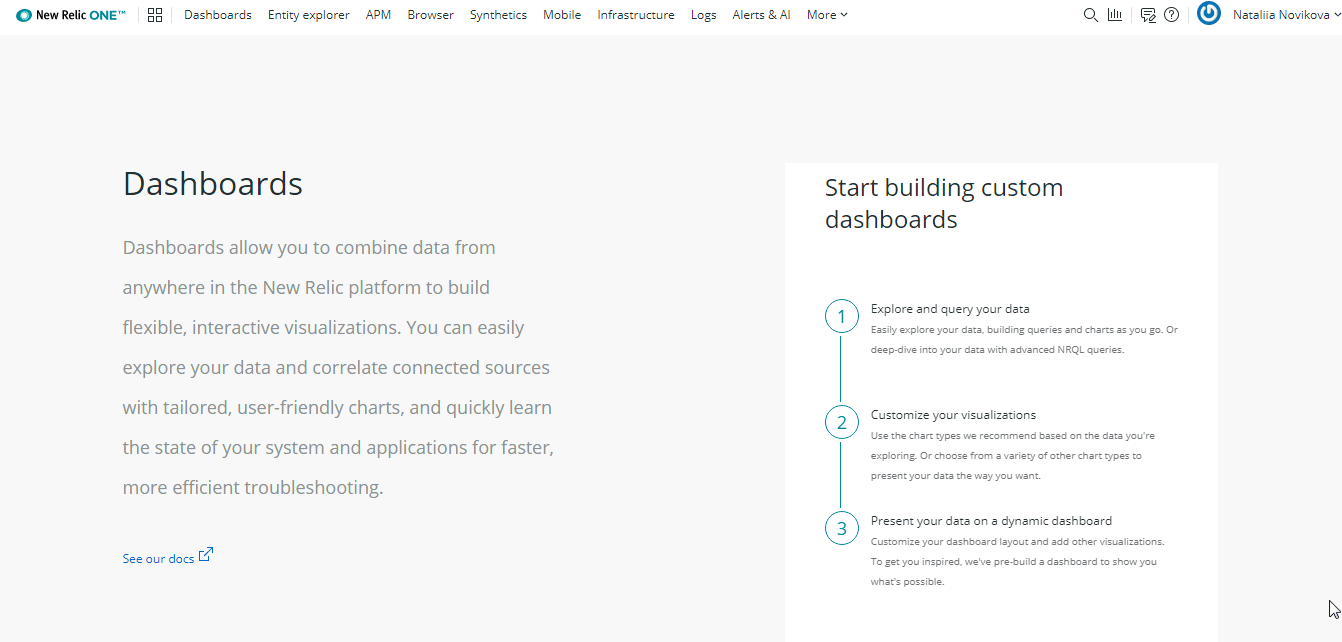
The webhook is successfully added.
Return a list of deployments.
Connection | |
Application ID | Select the Application ID whose deployments you want to list. |
Limit | Set the maximum number of deployments Make should return during one scenario execution cycle. |
Creates a new deployment.
Connection | |
Application ID | Select the Application ID whose deployments you want to create. |
Revision | Enter a revision number for the deployment. For example, 1.2 |
Changelog | Enter the changelog details of the deployment. |
Description | Enter the details of the deployment. |
User | Select the User ID who is creating the deployment. |
Deletes a deployment.
Connection | |
Application ID | Select the Application ID whose deployment you want to delete. |
Deployment ID | Select the Deployment ID you want to delete. |
Other
Performs an arbitrary authorized API call.
Connection | |
URL | Enter a path relative to NoteFor the list of available endpoints, refer to the New Relic API Documentation. |
Method | Select the HTTP method you want to use: GET to retrieve information for an entry. POST to create a new entry. PUT to update/replace an existing entry. PATCH to make a partial entry update. DELETE to delete an entry. |
Headers | Enter the desired request headers. You don't have to add authorization headers; we already did that for you. |
Query String | Enter the request query string. |
Body | Enter the body content for your API call. |
The following API call returns all the deployments from your New Relic account:
URL:
/v2/applications/{application_id}/deployments.json
Method:
GET
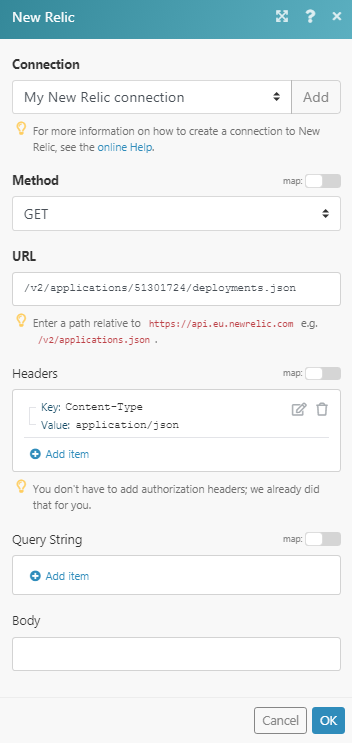
Matches of the search can be found in the module's Output under Bundle > Body > deployments.
In our example, 2 deployments were returned:
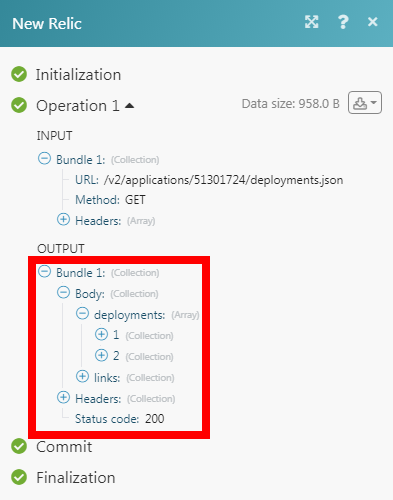 |